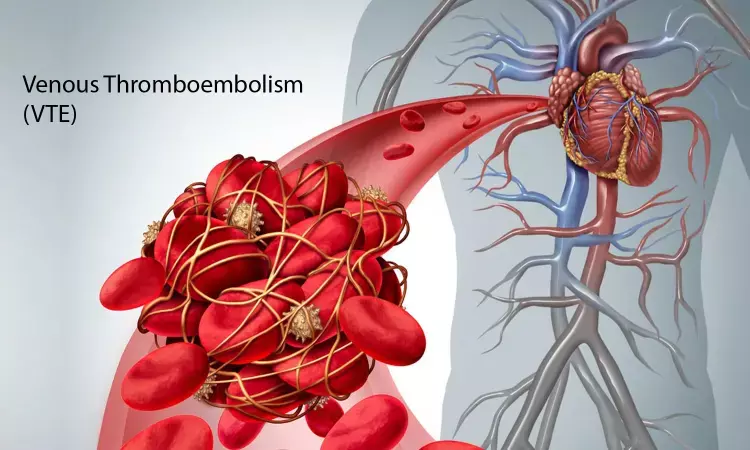- Home
- Medical news & Guidelines
- Anesthesiology
- Cardiology and CTVS
- Critical Care
- Dentistry
- Dermatology
- Diabetes and Endocrinology
- ENT
- Gastroenterology
- Medicine
- Nephrology
- Neurology
- Obstretics-Gynaecology
- Oncology
- Ophthalmology
- Orthopaedics
- Pediatrics-Neonatology
- Psychiatry
- Pulmonology
- Radiology
- Surgery
- Urology
- Laboratory Medicine
- Diet
- Nursing
- Paramedical
- Physiotherapy
- Health news
- Fact Check
- Bone Health Fact Check
- Brain Health Fact Check
- Cancer Related Fact Check
- Child Care Fact Check
- Dental and oral health fact check
- Diabetes and metabolic health fact check
- Diet and Nutrition Fact Check
- Eye and ENT Care Fact Check
- Fitness fact check
- Gut health fact check
- Heart health fact check
- Kidney health fact check
- Medical education fact check
- Men's health fact check
- Respiratory fact check
- Skin and hair care fact check
- Vaccine and Immunization fact check
- Women's health fact check
- AYUSH
- State News
- Andaman and Nicobar Islands
- Andhra Pradesh
- Arunachal Pradesh
- Assam
- Bihar
- Chandigarh
- Chattisgarh
- Dadra and Nagar Haveli
- Daman and Diu
- Delhi
- Goa
- Gujarat
- Haryana
- Himachal Pradesh
- Jammu & Kashmir
- Jharkhand
- Karnataka
- Kerala
- Ladakh
- Lakshadweep
- Madhya Pradesh
- Maharashtra
- Manipur
- Meghalaya
- Mizoram
- Nagaland
- Odisha
- Puducherry
- Punjab
- Rajasthan
- Sikkim
- Tamil Nadu
- Telangana
- Tripura
- Uttar Pradesh
- Uttrakhand
- West Bengal
- Medical Education
- Industry
Month long course of VTE prophylaxis post-discharge improves outcomes, finds panel

Boston, MA - A new set of guidelines, developed by AATS and ESTS (European Society for Thoracic Surgery) presented today at the AATS 101st Annual Meeting, recommends a 30-day course of Venous Thromboembolism (VTE) prophylaxis post-discharge for patients undergoing surgical resection for lung or esophagus cancer. The AATS and ESTS formed a multidisciplinary guideline panel that included broad membership to minimize potential bias when formulating recommendations. The McMaster University GRADE Centre supported the guideline development process, including updating or performing systematic reviews and meta-analyses. The results are endorsed by the American Society of Hematology (ASH) and the International Society on Thrombosis and Haemostasis, Inc (ISTH).
VTE is a potentially preventable postoperative complication for thoracic surgery patients, occurring in up to 14% of cases where patients underwent surgical resection for cancer. The panel made conditional recommendations for use of parenteral anticoagulation for VTE prevention, in combination with mechanical methods, over no prophylaxis for cancer patients undergoing anatomic lung resection or esophagectomy. Other key recommendations included conditional recommendations for using parenteral anticoagulants over direct oral anticoagulants (DOACs), with use of DOACs suggested only in the context of clinical trials and using extended prophylaxis for 28-35 days over in-hospital prophylaxis for patients at high risk of thrombosis, including those undergoing pneumonectomy and esophagectomy. Future research priorities include the role of preoperative thromboprophylaxis and the role of risk stratification to guide use of extended prophylaxis.
"The two largest thoracic surgery groups combined forces using the highest levels of diligence to develop a potentially practice-changing guidelines that meet the unique profile of thoracic surgery patients," said Dr. Yaron Shargall, professor and thoracic surgery division head, McMaster University. "Until now, guidelines provided the same standard of care for both cardiac and thoracic patients. Now, we are able to provide revised guidance based on real-world evidence working specifically with thoracic patients."
The guideline panel undertook a survey of thoracic surgeons and found that 95 percent indicated a willingness to accept new evidence-based guidelines in their practices. According to Shargall and Dr. Virginia Litle, Chief of Thoracic Surgery at Boston Medical Center and Professor of Surgery, Boston University School of Medicine, "This indicated to us that the Cardio Thoracic community was awaiting new guidelines. Clearly, there is value in applying a systematic, evidence-based approach to add weight to the guidelines."
Hina Zahid Joined Medical Dialogue in 2017 with a passion to work as a Reporter. She coordinates with various national and international journals and association and covers all the stories related to Medical guidelines, Medical Journals, rare medical surgeries as well as all the updates in the medical field. Email: editorial@medicaldialogues.in. Contact no. 011-43720751
Dr Kamal Kant Kohli-MBBS, DTCD- a chest specialist with more than 30 years of practice and a flair for writing clinical articles, Dr Kamal Kant Kohli joined Medical Dialogues as a Chief Editor of Medical News. Besides writing articles, as an editor, he proofreads and verifies all the medical content published on Medical Dialogues including those coming from journals, studies,medical conferences,guidelines etc. Email: drkohli@medicaldialogues.in. Contact no. 011-43720751


